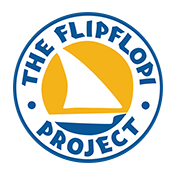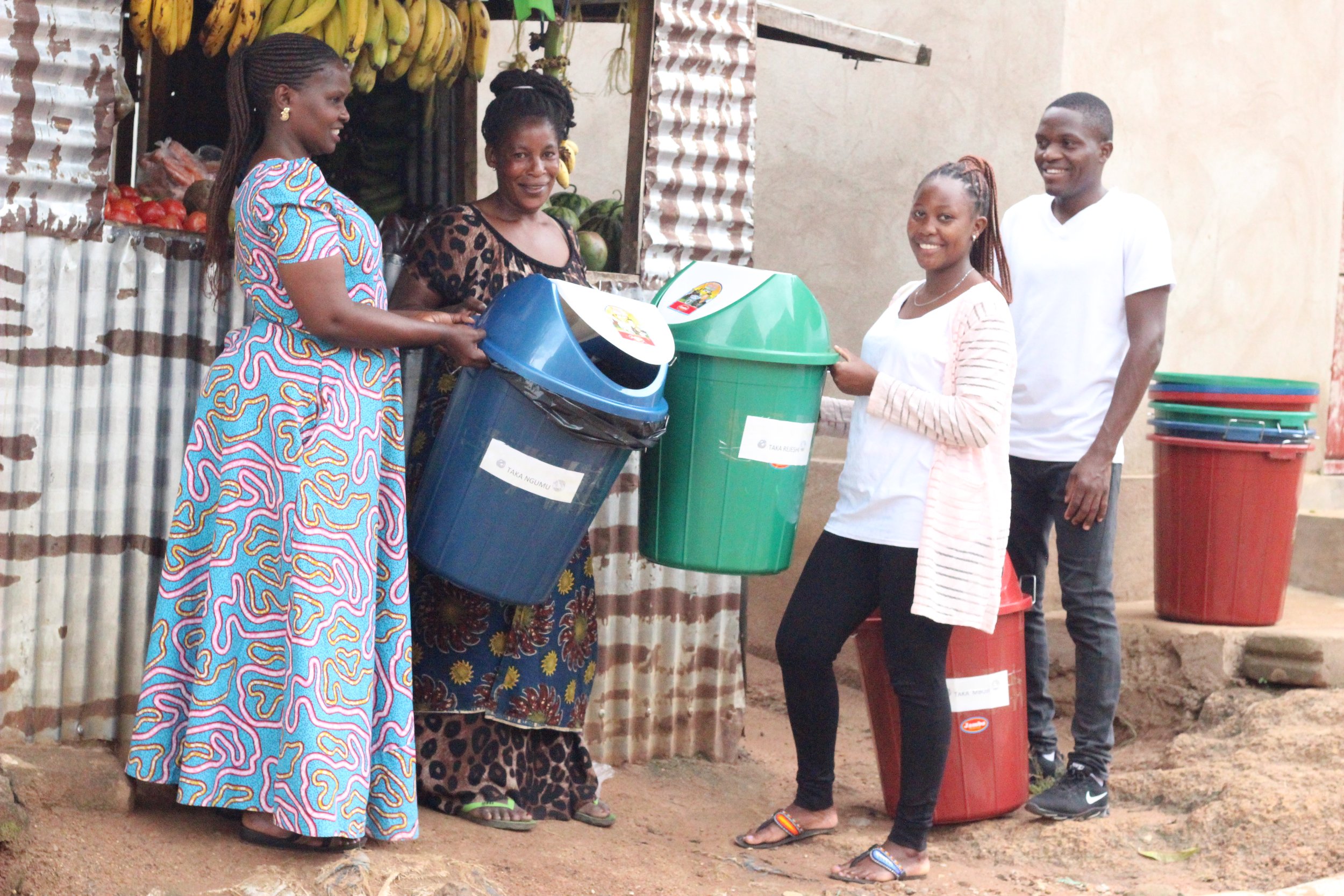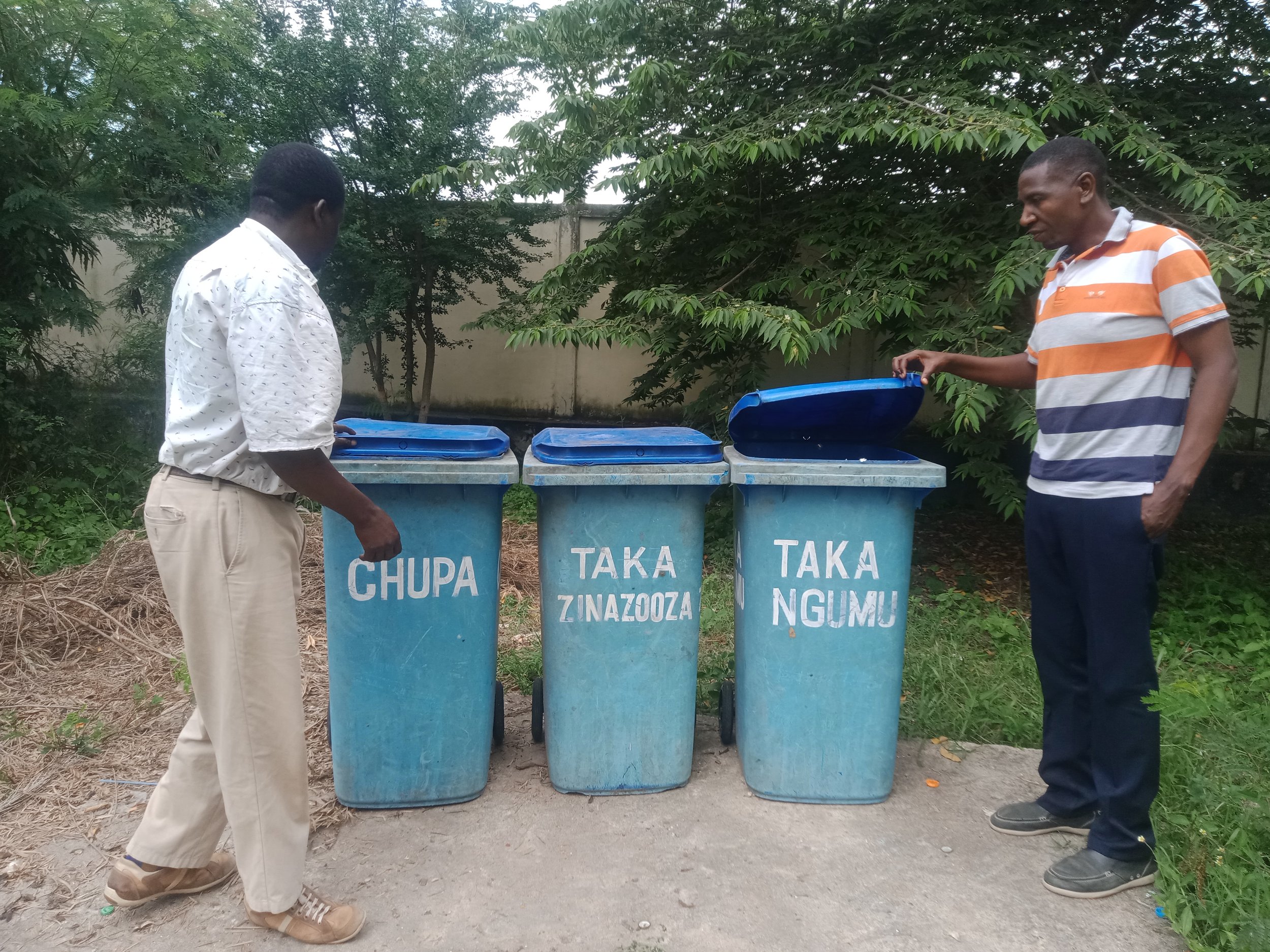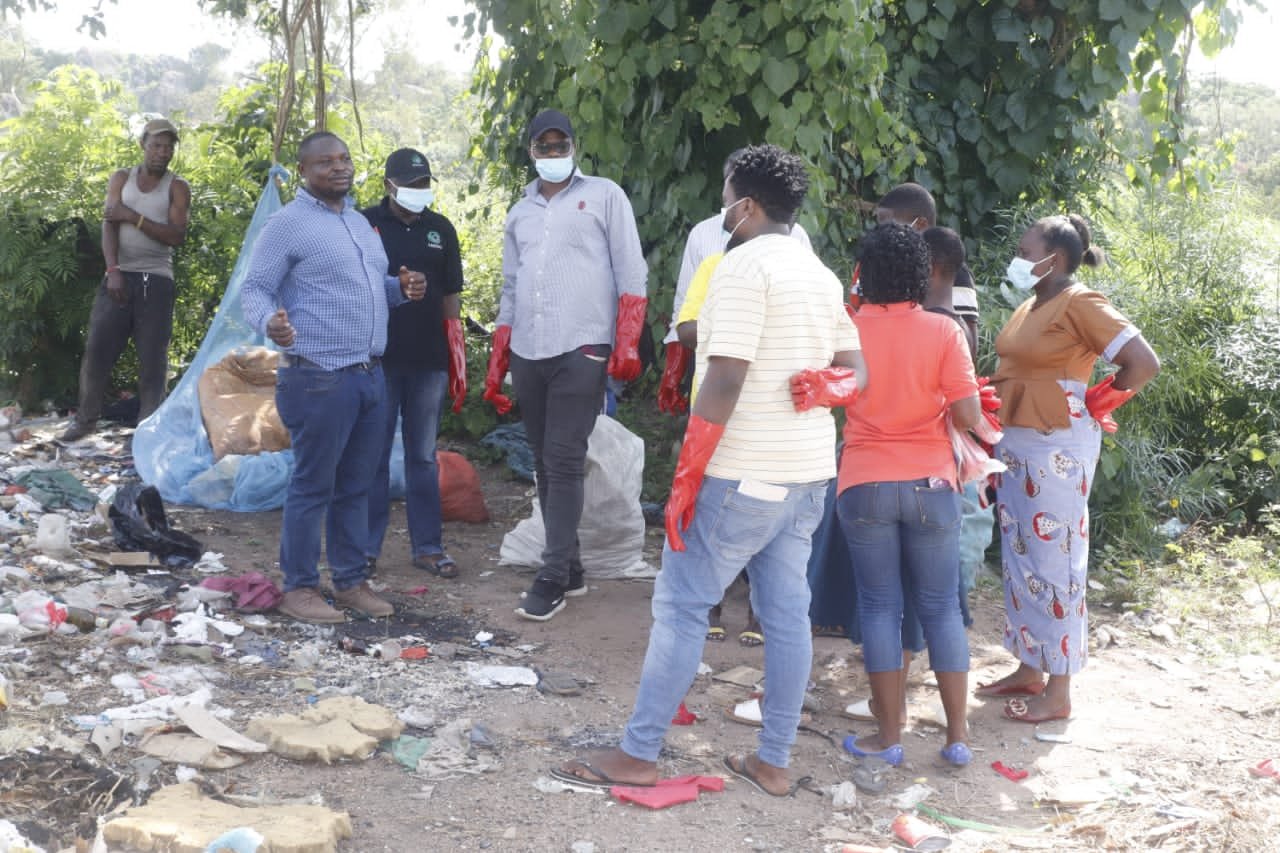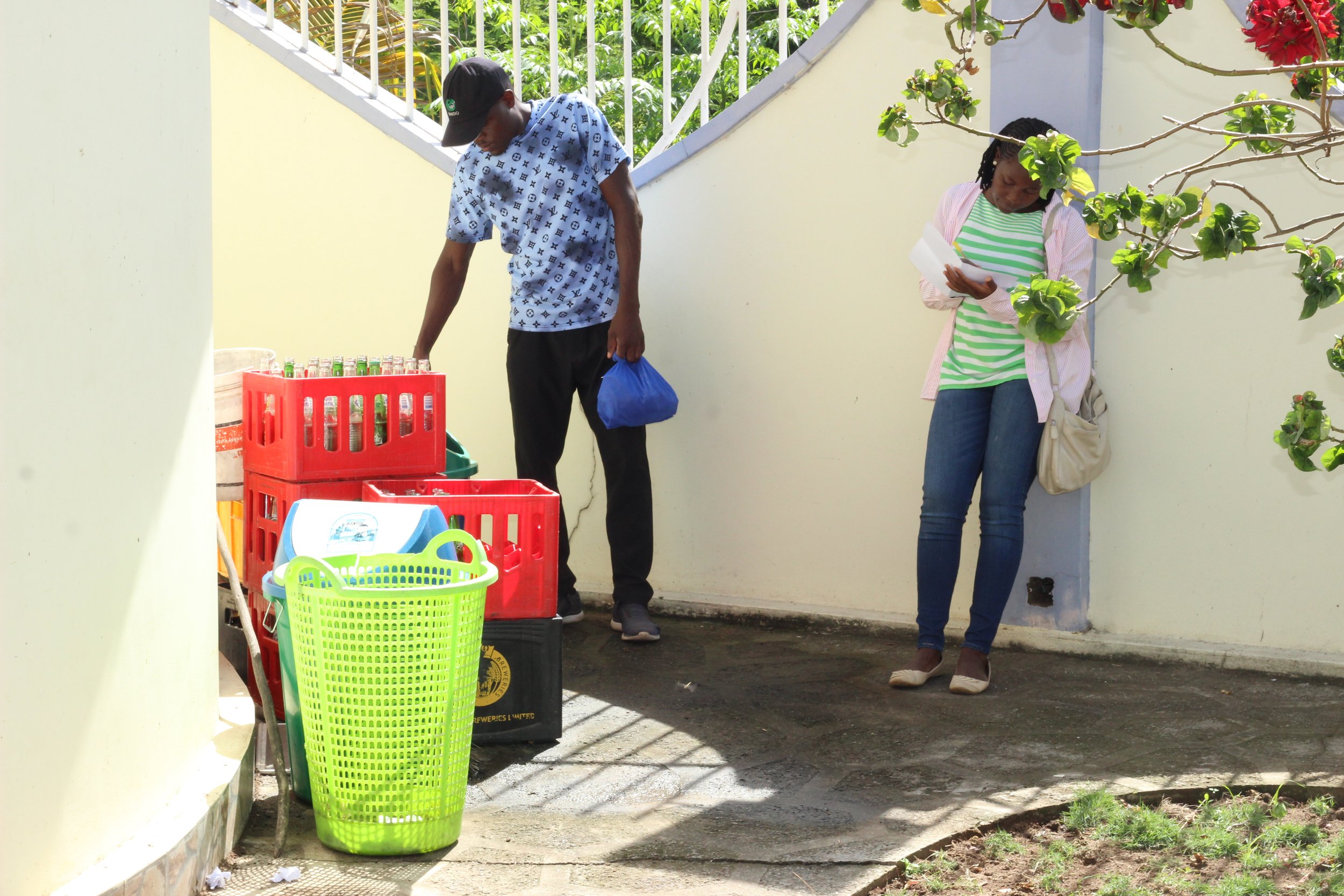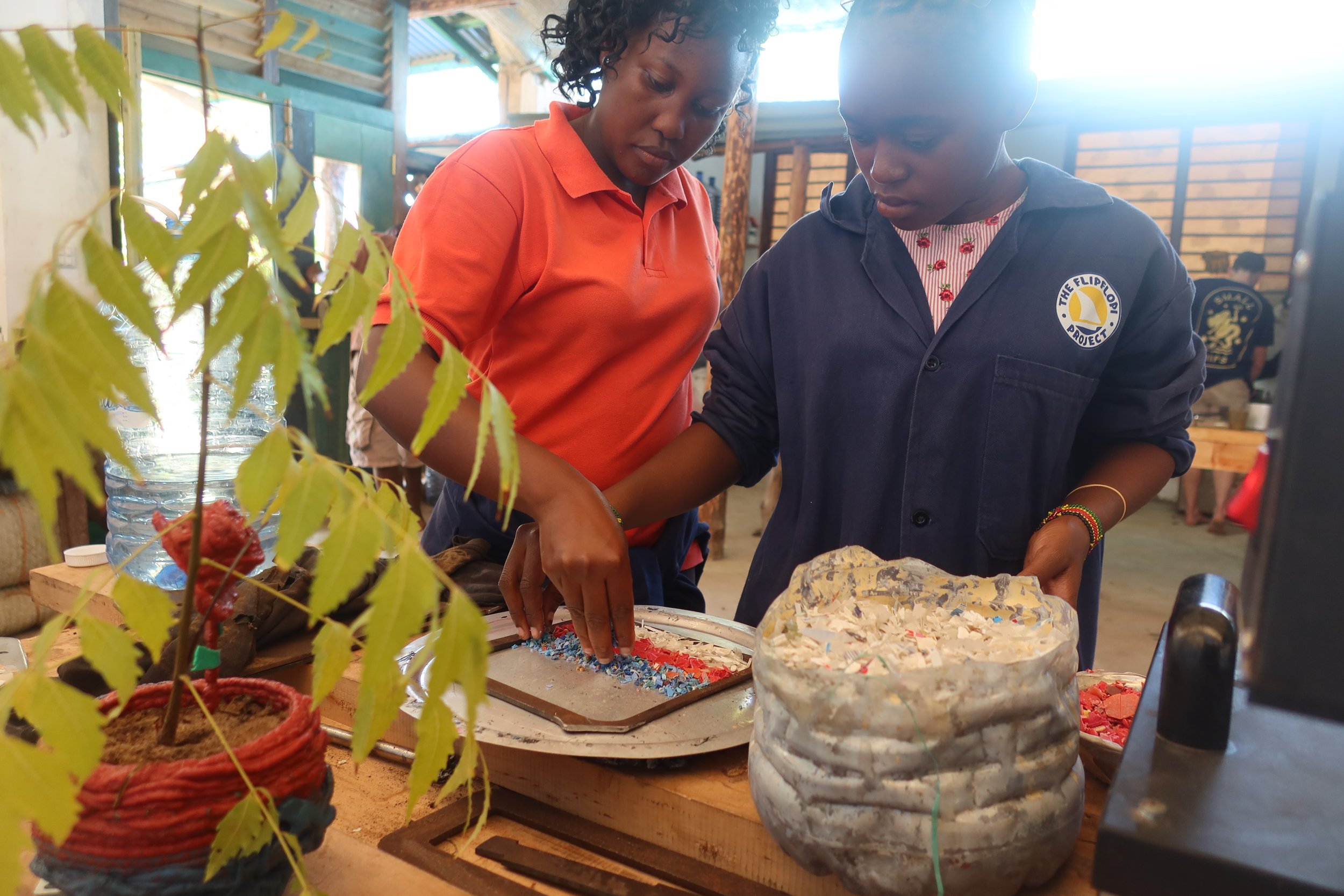Building resilient communities on the shores of Lake Victoria
Since the Flipflopi first arrived in Mwanza 2 years ago and through the support of our Tanzanian partners, EMEDO, we have successfully carried out a pilot neighbourhood waste management programme that has so far prevented more than 3.5 tons of mismanaged waste from entering the Lake. The pilot project began with 20 households in 2022 but has now grown to include hotels, businesses and soon local colleges.
During phase 1, EMEDO worked with women from 20 low and middle income households on Sweya and Silivini streets who previously had no access to formal waste management. After a 2 day training on waste separation and management, they began a 2 month programme that saw the collection of 1.7 tons of household waste and collected data to inform phase 2 of this project.
The objective of phase 2 is to include those that generate bigger volumes of waste such as hotels, restaurants, shops and market stands. So far, we have successfully involved 10 new stakeholders including 2 hotels, 4 restaurants, 3 vegetable sellers and 1 shop. With the support of community volunteers, the team carry out bi-weeky waste and data collections that also ensure recyclable waste is stockpiled and other waste is managed appropriately.
Earlier this year, Flipflopi and EMEDO cosponsored Happiness to join our recent crash course in plastic waste management in Lamu which we hosted in collaboration with the Red Cross. Happiness had the chance to see our best practices and take them back to her community in Mwanza. In her words:
‘Learning about the different types of plastics was eye opening because I didn’t know that plastics have so many different properties. The most exciting part was meeting young people who are also working with their communities so we could share experiences and I loved learning about the machinery and how you can transform plastics. I hope one day we can have something of that scale for the Lake communities.’
EMEDO have carried out environmental awareness and waste separation workshops with local stakeholders so they can better understand and take ownership of this project giving them the chance to also engage with larger regional campaigns such as Clean Shores, Great Lakes aimed at engaging local lake-side communities to tackle plastic pollution in our lakes.
2 women from our pilot programme were given the opportunity to join the Clean Shores, Great Lakes team alongside the local government to conduct beach clean ups, waste brand audits and community outreach programmes to demonstrate effective recycling practices and raise awareness on the impact plastic littering has on the lake and it’s ecosystem that these lakeside communities depend on.
Sustainable skill sharing for lake-side communities
More than 70% of the household waste collected in phase one was organic which would typically be dumped on the roadside in a mixed pile of waste, generating greenhouse gases and taking longer to decompose. To address this, Joyce Kavula, a member of WAWATA womens group came up with an innovative solution that would turn her trash into cash. Joyce has been producing fish feed from her organic waste and has managed to make a business from it for which she says demand is growing.
Lake Victoria supports the largest freshwater fishery in the world, producing 1 million tons of fish per year. Most households in this neighbourhood and surrounding the lake depend on fishing for their livelihoods and one of their biggest expenses is fish feed. With little support, Mama Joyce can now turn a waste into a sustainable feed and make an income from it.
We are so excited for this development that has the potential of significantly reducing waste ending up in landfills or in the lake and instead would provide an incentive for more community members to separate their waste and generate some value addition.
Thankfully for this community, the local Fisheries Education and Training Agency (FETA) has taken interest in this business and are in discussion with EMEDO and the women's group to explore how they can make this skill available for other community members by teaching it at their training institution.
The other main waste material collected are plastics. As Conjesta Williams from the WAWATA women's group says:
‘Most of the waste my household generates is plastic waste, I collected 3 sacks of plastic waste and sold them to a recycler and I also produced compost using my organic waste. This has greatly benefited me because I use my compost as a fertiliser in my garden. This project has opened my eyes to see the value our so-called waste has and I would love to see us take this important information to all lakeside communities so they too can benefit from their waste. Now when I see plastic bottles on the street I pick them up because of the education I’ve received.’
The future of solid waste management for Luchelele, Mwanza.
Phase 2 will run for three months and for the next few weeks, we’re looking forward to analysing the data we collect so we can inform better practices such as stockpiling plastic to sell to recyclers, engaging more communities and school clubs as well as transferring the skills we’ve learnt to the wider community and including them in the transition toward a zero-waste Mwanza, one neighbourhood at a time.
As we look forward to taking the #plasticrevolution further this World Environment Day, stay tuned to find out what EMEDO and their community get up to by following us on our social media channels.
